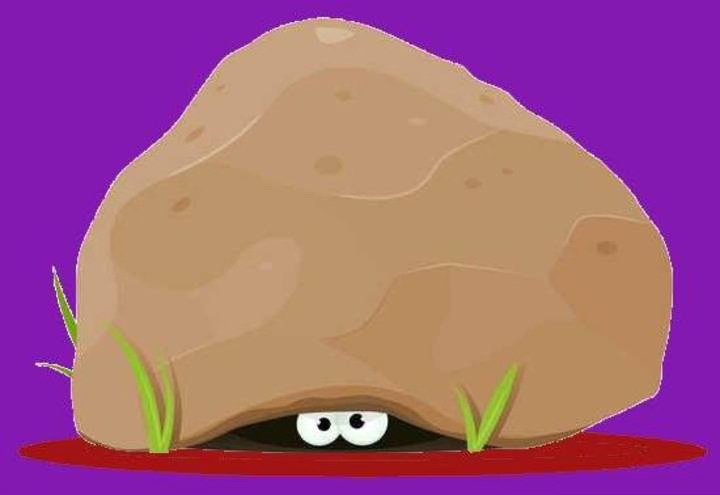As a child, it seemed like everything took forever—Christmas would never come, and you’d never be allowed to do anything. When you had to do something boring, time would slow down even more, making every second in the waiting room or the school day to drag on forever.
To a child, time is like a mystical snail, slow-crawling across the plane of existence. Never going quickly enough. Keeping you from everything good in life. Making you suffer through what you hate most at its a painfully plodding pace.
Kids aren’t the only ones who struggle to live beyond the present moment. All of us do. It may not be the boredom of the school day or the anticipation of a birthday. But there are times when our ability to persevere is stretched to the limit, beyond breaking, past our capacity.
You feel like a failure and can’t shake your shame. You’re alone or afraid and feel you have no one to turn to. You’ve been hurt and the anger and bitterness has slowly overshadowed your soul. You are in your situation, you see no end to it, and the suffering and sorrow is overwhelming. Your soul cries out like a child waiting for the end: “Are we there yet? When we will we get there? How long?”
the biblical tradition of lament
"How long?" is a both an everyday question and an ancient one stretching back across the millennia. The author of Psalm 13 asks this question four times in a prayer of despair and hope. It is a lament in which the psalmist brings all their negative feelings, emotions and experiences to God in prayer.
How long, O LORD? Will you forget me forever?
How long will you hide your face from me?
How long must I take counsel in my soul
and have sorrow in my heart all the day?
How long shall my enemy be exalted over me?
Psalm 13:1-2
Lament is a significant biblical tradition. It reflects the soul's anguish and its yearning for understanding and relief. It acknowledges our deepest sorrows and struggles, inviting us to bring our entire selves before God, even our darkest thoughts and deepest pains.
Biblical scholars differ on how many of the Psalms are laments. Some claim ¼ of Psalter is lament; some say it’s over ⅓. An entire book of the Hebrew Scriptures, Lamentations, is one long prayer of lament to God.
Jesus Himself lamented in the Garden of Gethsemane as He anticipated His betrayal. One of His most famous prayers is a lament quoted from Psalms as He hung on the cross: “My God, my God, why have you forsaken me?” (Matt. 27:46; Psalm 22:1). The biblical tradition of lament is long and storied and is an important part of the heritage of the Christian faith.
don’t worry, lament!
Lament is a counter-cultural endeavor in contemporary American society. We don’t like dwelling on the difficult and darker side of life. We want to look on the bright side, accentuate the positive. We take the Bobby McFerrin approach to sorrow and struggle.
But Scripture doesn’t invite us to avoid the negative and put on a happy face. If David had produced a late 1980s a cappella reggae smash hit, it might have been called, “Don’t Worry, Lament.” (I know. It’s not catchy. Need to workshop that one a bit more.)
“Don’t worry, be happy” is an act of will. It forces me to look at what is good and positive and to avoid what might otherwise bum me out.
Lament is an act of faith. It requires acknowledging the reality of sadness, suffering, and sin. It recognizes their persistence in our lives and our incapacity to overcome them alone. It involves trusting that God is present, that He listens, and that He cares, even when we feel abandoned in our darkest moments.
embrace the darkness, emerge in the light
The psalmist was in the midst of emotional and spiritual darkness when he wrote Psalm 13. He was in a pitch black dark night of the soul. He is forgotten, abandoned, alone, and defeated.
Have you been there? I have. I have felt every one of those things, in a darkness so thick you could reach out and grab hold of it; a spiritual darkness more real, more solid than anything in the visible world.
In the midst of that, do you know what the last thing I wanted to do was? Pray! I didn’t want to talk to God! He had forgotten me! I didn’t want to speak to him; He was hiding from me! In my loneliness, I would far rather speak to myself, talk to myself, take counsel in my own soul than reach out a prayer to the Lord. I would rather crawl under a rock than face my defeats, acknowledge my failures.
I think part of the reason so many of the Psalms are laments is that, when you’re in that place of depression and despair, you don’t have the energy or strength to come up with your own prayer. You can’t muster the faith, the words, the desire to bring any of it to God.
The Psalms of lament are a kindness to the soul in despair. They say, “You don’t have to come up with your own language. Here, use this. Try it and see if God doesn’t use it to bring the healing you need.”
There is a wisdom in the season of Lent. It breaks out at least 6 weeks a year in which avoidant people like us are invited to take a good long look at the dark side of life. Things might not be all bad. But some things are bad. Lament is an important Lenten practice. It gives us a way to acknowledge that reality and move into hope with God.
The progression from despair to hope—as we can see it in Psalm 13—reveals the journey from questioning to trusting, from darkness to light. The Psalmist pleas for God to "light up my eyes, lest I sleep the sleep of death" (v.3). In our deepest darkness, God remains our only source of light and hope.
The prayers of lament in Scripture open up a pathway for us to emerge into that divine light. They move from darkness to light, from sorrow to glory. They look reality full in the face, admit that life is hard and dark and a total mess sometimes, and bring that reality to God.
And in that act of faith, God meets us in grace. He comes along side, accompanying us through the valley of the shadow of death, leading us to see light in His light.








Lamenting reveals to me how kind and compassionate God is! He can handle my big feelings because He is a big God. Growing up, the constant refrain was “do not complain” and it felt stifling. But lament allows for me to acknowledge the pain/disappointment/fear.
Thanks for this. This makes me think of the idea of a holy grit, that Christians build a spiritual toughness. It's an embrace of suffering but doing it well. It's not putting on a happy face but it's not sulking either. If this is biblical, I suppose fasting can be our part in acquiring this. Here we learn how to be without getting what we want